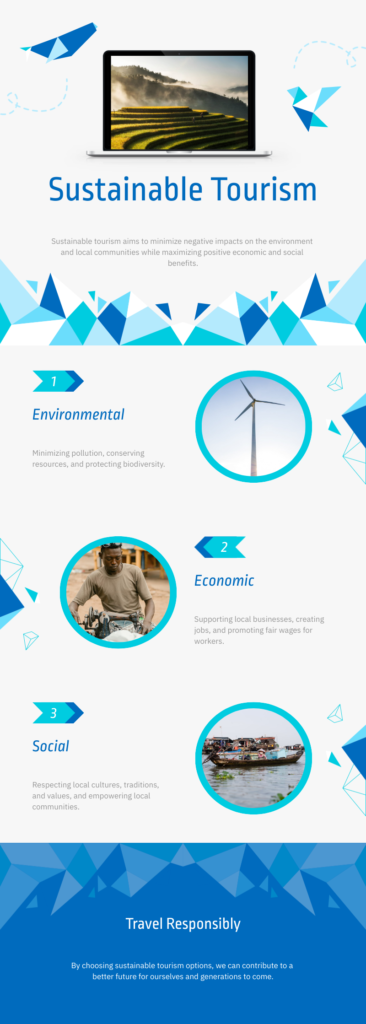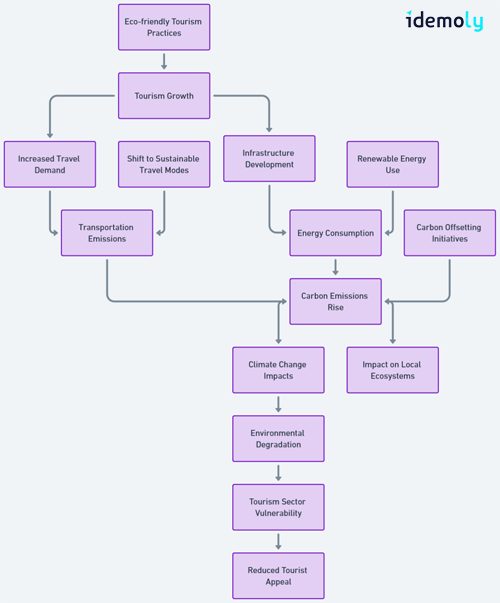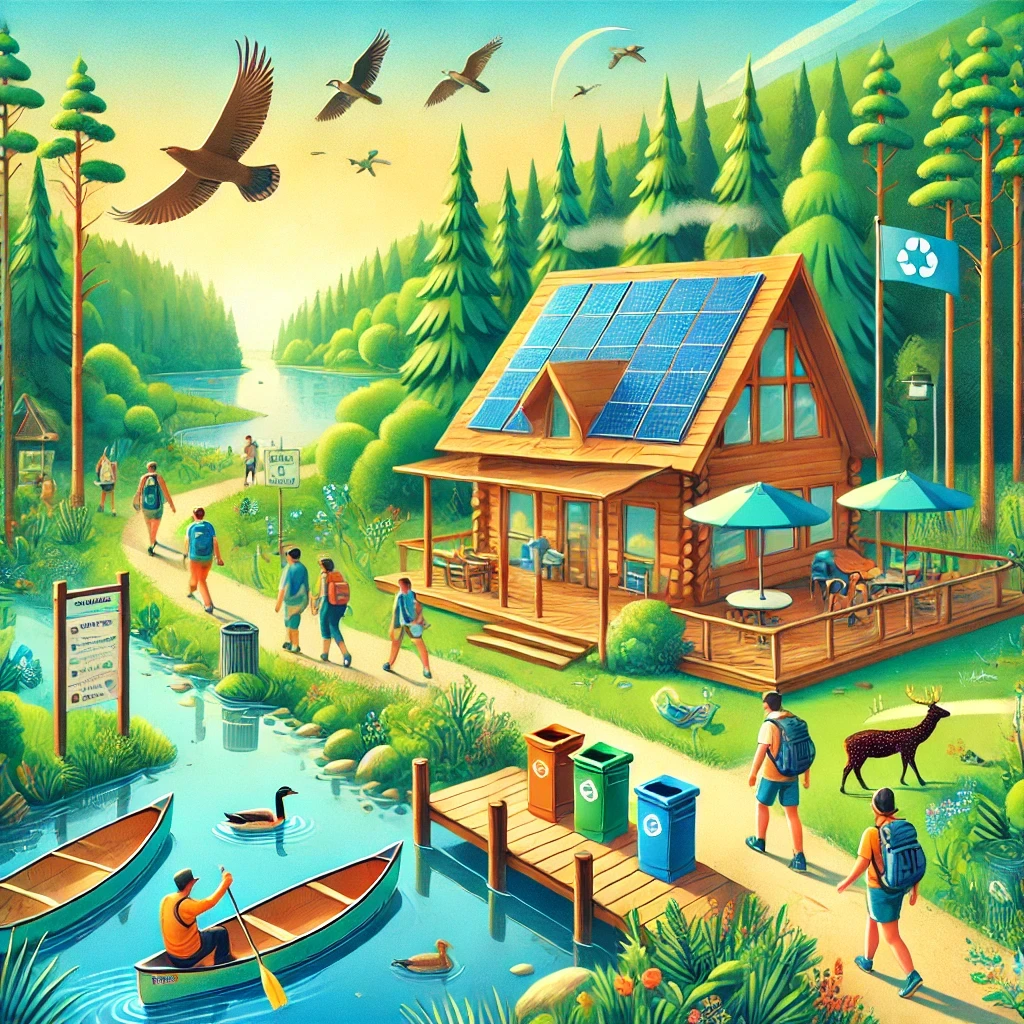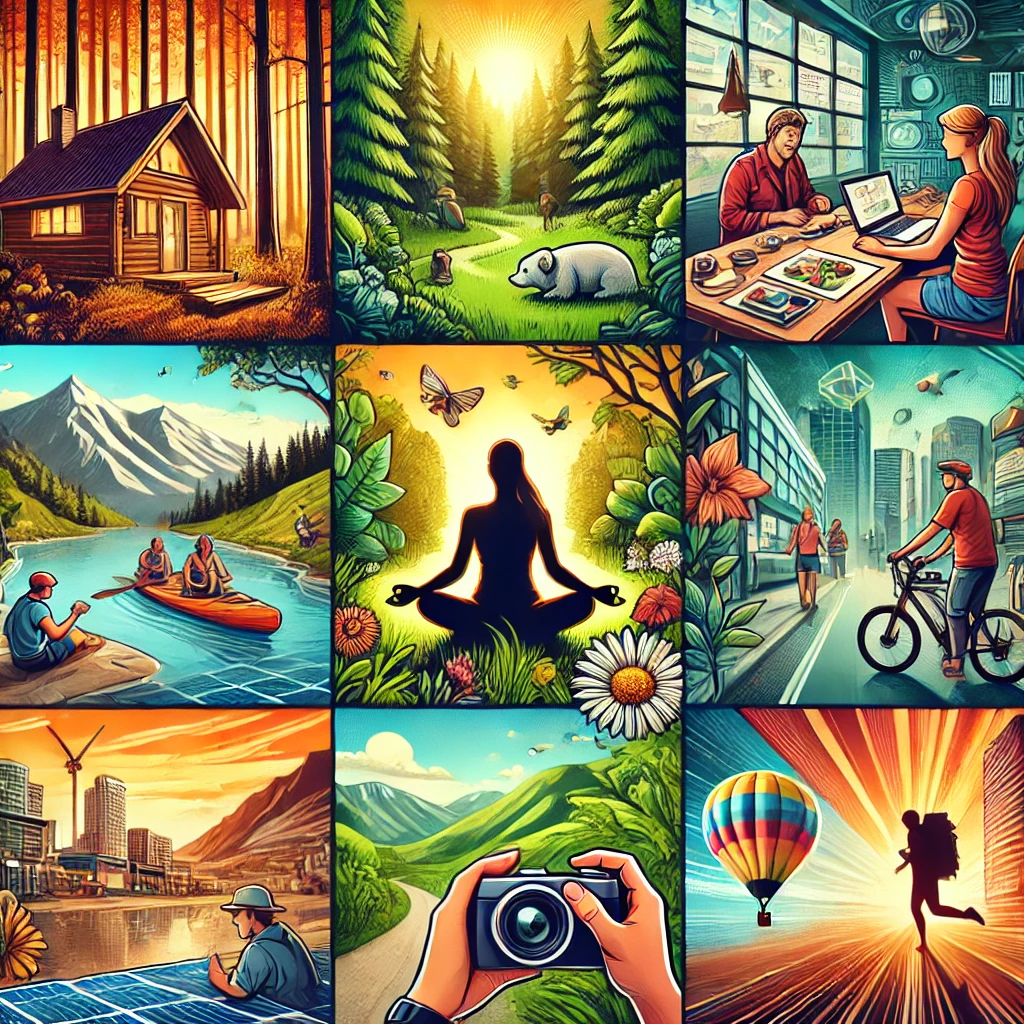The travel industry is transforming, and sustainable tourism is at the heart of this shift. More travelers are learning about the environmental issues and social effects of their trips. This has lad to a rising demand for responsible and sustainable tourism practices.
This is more than a trend. This change is necessary. We need to protect the beautiful places we love for future generations.
Over-tourism, climate change, and social disruption are causing problems in local communities. These issues show that we need to make changes now. Sustainable tourism offers a solution, promoting practices that minimize negative impacts and maximize benefits for local environments, economies, and communities. Making thoughtful choices that protect natural resources, respect cultural heritage, and support economic resilience is essential.
Understanding Sustainable Tourism: What It Means for the Industry
Sustainable tourism is more than being eco-friendly. A complete approach considers the environment, local cultures, and economic health. Travelers and businesses must adopt practices that reduce their ecological footprint while contributing positively to local communities. This way, we ensure eco-tourism can thrive for generations to come.

The Environmental and Social Challenges Facing Tourism Today
The tourism industry faces several significant challenges, all which call for sustainable solutions. The most pressing issues are climate change, over-tourism, resource shortages, and the income gap.
- Climate Change: As temperatures increase and weather becomes less predictable, many popular places risk losing their natural beauty. Rising sea levels threaten coastal areas, while hotter temperatures can damage ecosystems and disrupt travel plans.
- Over-Tourism: Destinations overwhelmed by too many visitors suffer environmental damage and loss of cultural tradition. Overcrowding can lead to aging infrastructure, making these spots less enjoyable.
- Resource Shortages: Tourism is resource-intensive, and many popular destinations already struggle with water shortages and energy efficiency problems. Without sustainable development, these shortages will only worsen.
- Income Gap: Tourism’s benefits often do not reach local communities. This creates a growing gap between wealthy tourists and locals who rely on tourism for their jobs.
How Climate Change and Over-Tourism Impact Popular Destinations
Climate change is a pressing issue for the tourism industry. Rising sea levels and unpredictable weather are causing significant problems in popular travel spots like coastal areas and mountains. Famous beaches may become submerged, and ski resorts may see reduced snowfall.
Over-tourism exacerbates the issue by adding additional pressure on already strained resources. The arrival of many tourists can harm natural landscapes. It can also put pressure on local infrastructure and weaken the local culture that visitors want to enjoy.
Practical Solutions: Implementing Sustainable Practices in Tourism
Implementing sustainable tourism practices is essential to combating these challenges. Tourism businesses need to rethink their operations, adopting eco-friendly methods that minimize environmental impact while providing enriching experiences for travelers.

Sustainable Branding
One key aspect of sustainable tourism is effective sustainable branding. By highlighting eco-friendly initiatives and sustainability certifications, businesses can attract eco-conscious travelers who prioritize responsible tourism.
Eco-Friendly Infrastructure and Waste Management
Tourism providers can significantly impact the environment by adopting green building practices and sustainable infrastructure. Utilizing renewable energy sources, implementing recycling programs, and reducing single-use plastics are critical steps in this transition.
Community-Based Tourism
Fostering community-based tourism allows businesses to collaborate with local artisans, farmers, and entrepreneurs to create authentic, enriching experiences that support the local economy. It also ensures that the destination’s cultural heritage remains intact and respected.
Green Experiences and Eco-Tourism
Promoting nature-based activities such as hiking, wildlife tours, and conservation projects can help protect natural environments while providing unique experiences for travelers. Educating tourists about sustainability and encouraging them to participate in eco-friendly activities are additional ways to drive positive change.
How Idemoly is Pioneering Sustainable Tourism Solutions
At Idemoly, we’re committed to helping tourism providers transition to more sustainable business models. We have custom strategies for making your brand greener, setting up eco-friendly systems, or supporting local communities. These strategies will benefit your business and the environment.
Learn more on how we can help you on our Sustainable Tourism page.
Empowering Local Communities Through Eco-Tourism
One of the greatest benefits of sustainable tourism is its ability to empower local communities. By creating tourism experiences based on local culture, we help preserve these traditions. This also ensures that tourism money supports the local people. Idemoly helps businesses foster these connections through partnerships with local artisans, farmers, and tourpreneurs.
Steps You Can Take to Make Your Tourism Business More Sustainable
steps you can take to make your business greener:
- Conduct environmental assessments to identify areas where you can reduce waste, energy consumption, and water use.
- Promote eco-friendly tours and places that highlight natural beauty without damaging ecosystems.
- Engage local communities in your tourism planning to ensure that they benefit economically and culturally from tourism activities.
- Invest in staff training to educate employees about sustainability and empower them to champion green practices.
Why Sustainability is the Key to the Future of Travel
Sustainability isn’t just a buzzword—it’s the future of tourism. Modern travelers are increasingly aware of their environmental impact. Companies that neglect sustainable practices risk falling behind their competitors. Implementing sustainable tourism practices today can elevate your business, attract eco-friendly travelers, and help nurture a healthier environment.
FAQ: Sustainable Tourism
How is sustainable tourism defined?
Sustainable tourism is vital for protecting the environment, preserving cultural heritage, and ensuring that local communities benefit from tourism. It helps prevent the negative impacts of over-tourism and encourages practices that support long-term ecological balance.
How can my business benefit from sustainable tourism?
Implementing eco-tourism practices can help your company attract travelers who value the environment. This can boost your brand’s reputation and secure lasting success. Green tourism practices also lead to cost savings through efficient resource use.
What steps can I take to implement sustainable practices?
You can start by reducing waste, using renewable energy, collaborating with local communities, and promoting eco-friendly tours. Implementing these changes may require professional guidance, which Idemoly can help provide. For more information, visit our Sustainable Tourism Page.
How can Idemoly help my business implement sustainable tourism?
Idemoly offers tailored solutions, including eco-friendly infrastructure planning, sustainable branding, and community-based tourism strategies. We work closely with businesses to ensure their tourism offerings are both environmentally sustainable and economically viable.


